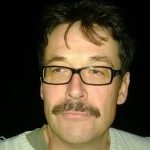About
Vector-borne diseases (dengue, Zika, chikungunya) are an important public health issue. Understanding their transmission dynamics remains a major challenge at the sub-urban level. Indeed, environmental heterogeneities, variations in vector densities and daily mobility hinder the definition of epidemic risk indicators at this scale. MO3 therefore aims to (i) develop a simulation model to study the sensitivity of epidemic dynamics to targeted scenarios of vector control and (ii) evaluate in a large metropolis where dengue is endemic, Bangkok (Thailand), the effectiveness of these strategies. To achieve these objectives, the MO3 project will rely on SEIR and agent-based models, with high spatial and temporal resolution, to describe finely the urbanized space and the variety of dynamics that unfold there. Vector dynamics will be influenced by the spatial and temporal heterogeneity of their ecological niche, those of humans by their daily mobility, partly linked to their place of residence, their socio-economic profile and their age. The calibration of the model will be based on various data: satellite images, census, social networks, transport ridership, vector and epidemiological retrospective data already accumulated during the EU DENFREE consortium. We also plan prospective field surveys. Sites will be selected according to the suitability of the ecological niche for the vector and a value gradient of centrality of the places. Weekly surveys over a 2-year period will be used to analyze the evolution of adult mosquito stocks with respect to these two indicators, and epidemiological surveys of at-risk populations will be used to assess exposure levels, according to these two indicators. All of this data will then be used to calibrate and validate the simulation model. These methods will also evaluate and compare vector control strategies against the epidemiological dynamics simulated by the model, in search of the most effective strategy or strategies. In collaboration with Chulalongkorn University, Institute for Urban Disease Control and Prevention and the Siam Cement Group, we will then implement novel vector techniques guided by the models. MO3’s ambition is therefore to develop a generic method that allows for vector-based control in priority areas, thus enabling local actors to optimally allocate their available but limited resources.
